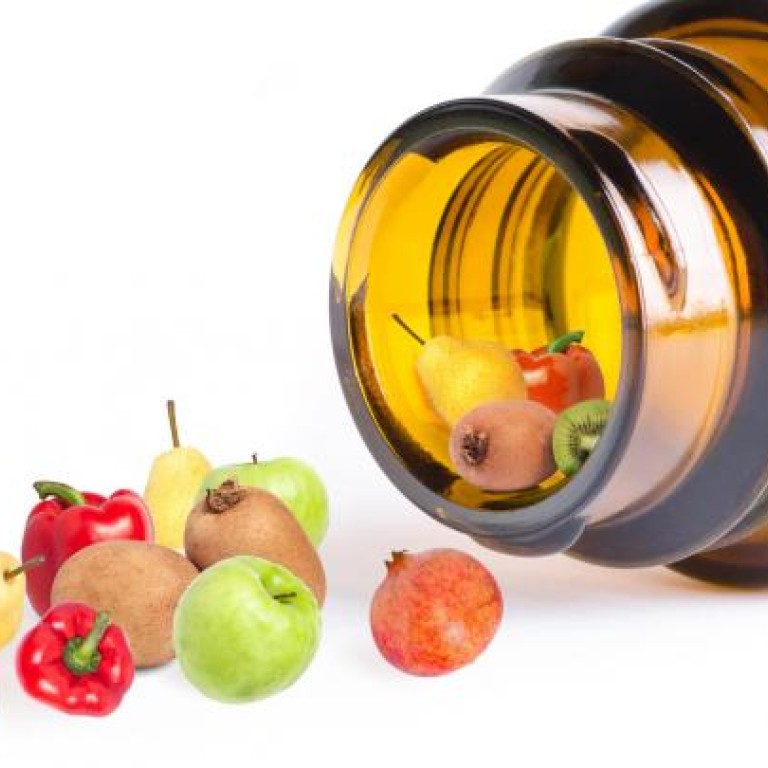
Multivitamins may help guard against cancer
In a recent study published in The Journal of the American Medical Association, it was found that daily multivitamin supplementation reduced the risk of total cancer in men by 8 per cent.
When John Chia read that a diet high in antioxidants could slash a person's risk of developing cancer, he began to incorporate more fruit and vegetables into his diet. Not satisfied with just eating healthily, he also started taking dietary supplements daily for "extra antioxidant insurance".
"At 41, I feel better than ever," says the father of three. "If antioxidants can prevent cancer, then I'm guessing that the higher my antioxidant intake, the higher my level of protection."
He might be on to something. In a recent study published in it was found that daily multivitamin supplementation reduced the risk of total cancer in men by 8 per cent. Although the study showed it did not reduce the risk of prostate cancer and site-specific cancers such as colorectal cancer, lung cancer and bladder cancer, and cancer mortality, the results are nevertheless significant.
According to registered dietician Carmen Lo Ka-man, cancer results from damage to DNA in cells, causing the cells to grow out of control. There are a number of causes that lead to cell damage, among them chemicals found in cigarette smoke, radiation from too much sun or radioactive exposure, pesticides or herbicides in food, genetic abnormalities, and even some viruses.
Lo adds that the food we eat also affects DNA function, although the exact mechanisms are unclear. "The link between diet and cancer is complicated, and scientists have not yet unravelled the exact mechanisms involved. This is because diets are made up of different foods containing many nutrients that interact in different ways in individuals," she says. Based on scientific evidence, the World Cancer Research Fund has produced recommendations on food, nutrition and physical activity to help reduce the risk of cancer.
Only whole-food vitamins offer the nutrients in the complex form found in food, ones known to offer protective benefits
Although the study is encouraging, it is important to remember that multivitamins are not the magic bullet when it comes to cancer prevention. What is more effective is adopting habits that support our immune system and optimise cell function. In addition to taking antioxidant-rich multivitamins, which support our own antioxidant production and neutralise excessive free radicals that can damage DNA, it is imperative that we eat well, stay adequately hydrated, minimise our intake of toxins, get adequate exercise and sleep, and live a balanced lifestyle, says Charles Au, co-founder and director of Verita Advanced Wellness in Singapore.
According to Graeme Bradshaw, naturopath, homeopath and founding director of the Integrated Medicine Institute, the nutrients that best protect against cancer are folic acid, vitamin B6 and B12, which prevent damage to DNA; selenium, which purges our body of carcinogenic substances; and vitamin C and zinc, which optimise white blood cell performance and boost our immunity against disease.
As helpful as multivitamins are, they are no replacement for a healthy, balanced diet based on natural wholefoods. In fact, fruits and vegetables are still the way to go to minimise your cancer risk. Bradshaw adds: "A large number of studies have shown that increased consumption of fresh fruits and vegetables - about five servings a day - is associated with a reduced risk for most types of cancer. Of course, natural dietary sources of nutrients are better than synthetic vitamin sources but the question is whether most people's diets provide the optimal level of nutrients. The answer is usually no. In Hong Kong, the average fruit and vegetable consumption is two servings a day."
If your diet does not provide enough vitamins and minerals, then taking daily multivitamin supplements is better than nothing. You might also need multivitamins if you suffer from deficiency diseases or for other medical reasons. It is best to discuss your supplementation needs with your health care professional.
Most multivitamins on the market are synthetic and do not replace the beneficial effects of food-based antioxidants.
However, says Bradshaw, we know that optimal levels of these natural antioxidant nutrients are rarely achieved in the diet. If the correct form - which is the natural food state - of antioxidants can be taken as a multivitamin, then the problem of sub-optimal dietary levels is solved.
Food-state multivitamins act like foods, delivering the optimal levels of protective nutrients. They are far superior to synthetic vitamins.
"I recommend these food-state or whole-food vitamins that use the natural forms of antioxidants and vitamins." says Bradshaw.
"Only food-state or whole-food vitamins offer the nutrients in the complex form found in food, ones known to offer protective benefits. These supplements are absorbed twice as well, last twice as long in the body, and have enhanced activity owing to their more complex forms, compared to synthetic vitamins."
What men need
Graeme Bradshaw of the Integrated Medicine Institute shares his expertise on what vitamins and minerals men require most.
-
A five-year study of more than 120,000 people found that men with the highest vitamin D intakes had a risk of colorectal cancer that was 29 per cent lower than men with the lowest vitamin D intakes.
-
is especially important to men who drink because alcohol interferes with the body's ability to absorb folic acid. In a study of more than 45,000 male health professionals, intake of more than two alcoholic drinks a day doubled the risk of colon cancer. Drinkers are somewhat protected by B-complex supplements with folic acid. Green vegetables are excellent sources of folic acid, which may play an additional role in their anti-carcinogenic effect through other phytonutrients.
- deficiency leads to poor health in the prostate gland as it limits the gland's capacity to detoxify testosterone. A 2010 Swedish study of men with localised prostate cancer found that high dietary zinc improved survival by 36 per cent over a six-year follow-up. Vegetarian men are most prone to low levels of zinc.

